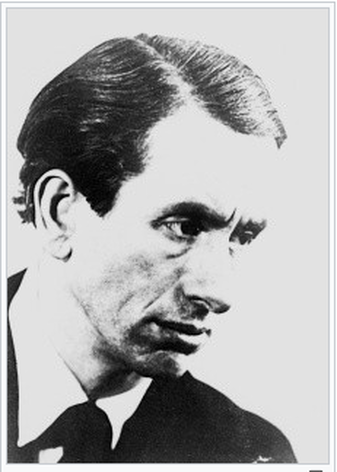TRACK OF THE MONTH: SEPTEMBER 2019
Hans KrÁsa's OVERTURE (Terezín 1944)
|
|
Here is the Overture for Small Orchestra, one of the last works Hans Krása composed in Terezín before he was sent to Auschwitz on October 16, 1944. With its driving rhythm, arcing melody, and colorful orchestration, it is recognized as a small masterpiece. Come hear Krasa's Overture make its Symphony Hall debut! Andris Nelsons conducts members of the Boston Symphony Orchestra in a performance on November 11, 2019; the Overture is a highlight of the Terezín Music Foundation annual gala, this year titled "Our Will to Live." Info and tickets are here. |
|
"I am sufficiently daring, as a modern composer, to write melodic music. This reflects my whole attitude to music, whether it is called modern or anything else." — Hans Krása
|
HANS KRÁSA (1899–1944) was a leading figure of the cultural life of Terezín and is best remembered as the composer of the children's opera "Brundibar" ("The Bumble Bee"). He was an important member of the Czech- and German-speaking artistic community that defined Prague's distinctive cultural life in the first decades of the twentieth century. His youthful works include song cycles, chamber works, a cantata, and an opera. His 1923 symphony for small orchestra was performed in Zurich by his mentor Alexander Zemlinsky, by the Boston Symphony with Serge Koussevitsky, and by the Philadelphia Orchestra with Leopold Stokowski. While Krása's style was influenced by Stravinsky, Mahler, early Schönberg, and French impressionism, his music remained melodic and lyrical.
Krása's Overture has a melodic connection with his children's opera "Brundibar," the last work he completed before his arrest by the Nazis in 1942. In Terezín, he reworked "Brundibar" for the available players, and it was performed there fifty-five times as well as in the infamous propaganda film and a staged International Red Cross Committee visit in 1944. Krasa was transported to Auschwitz along with Terezín composers Viktor Ullmann, Pavel Haas, and Gideon Klein. He was murdered there in October 1944. |

